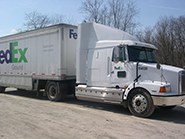Manufacturer Warranty Concerns
One of the number one questions received at Kleenoil USA is regarding installation of a Kleenoil Onboard Oil Recycling System on your truck or equipment and whether the installation could void the warranty?
Rest assured that due to the Magnuson-Moss Warranty Act, this is not a concern at all.
We also have a comprehensive list of the major manufacturers below and their statements on use of Kleenoil Onboard Oil Recycling System on their equipment. At the very bottom of this article are printable PDF versions of the major manufacturer warranty letters.
Understanding the Magnuson-Moss Warranty Act
The Magnuson-Moss Warranty Act is the federal law that governs consumer product warranties. Passed by Congress in 1975, the Act requires manufacturers and sellers of consumer products to provide consumers with detailed information about warranty coverage. In addition, it affects both the rights of consumers and the obligations of warrantors under written warranties.
To understand the Act, it is useful to be aware of Congress' intentions in passing it. First, Congress wanted to ensure that consumers could get complete information about warranty terms and conditions. By providing consumers with a way of learning what warranty coverage is offered on a product before they buy, the Act gives consumers a way to know what to expect if something goes wrong, and thus helps to increase customer satisfaction.
Second, Congress wanted to ensure that consumers could compare warranty coverage before buying. By comparing, consumers can choose a product with the best combination of price, features, and warranty coverage to meet their individual needs.
Third, Congress intended to promote competition on the basis of warranty coverage. By assuring that consumers can get warranty information, the Act encourages sales promotion on the basis of warranty coverage and competition among companies to meet consumer preferences through various levels of warranty coverage.
Finally, Congress wanted to strengthen existing incentives for companies to perform their warranty obligations in a timely and thorough manner and to resolve any disputes with a minimum of delay and expense to consumers. Thus, the Act makes it easier for consumers to pursue a remedy for breach of warranty in the courts, but it also creates a framework for companies to set up procedures for resolving disputes inexpensively and informally, without litigation.
What the Magnuson-Moss Act Does Not Require
In order to understand how the Act affects you as a businessperson, it is important first to understand what the Act does not require.
First, the Act does not require any business to provide a written warranty. The Act allows businesses to determine whether to warrant their products in writing. However, once a business decides to offer a written warranty on a consumer product, it must comply with the Act.
Second, the Act does not apply to oral warranties. Only written warranties are covered.
Third, the Act does not apply to warranties on services. Only warranties on goods are covered. However, if your warranty covers both the parts provided for a repair and the workmanship in making that repair, the Act does apply to you.
Finally, the Act does not apply to warranties on products sold for resale or for commercial purposes. The Act covers only warranties on consumer products. This means that only warranties on tangible property normally used for personal, family, or household purposes are covered. (This includes property attached to or installed on real property.) Note that applicability of the Act to a particular product does not, however, depend upon how an individual buyer will use it.
The following section of this manual summarizes what the Magnuson-Moss Warranty Act requires warrantors to do, what it prohibits them from doing, and how it affects warranty disputes.
What the Magnuson-Moss Act Requires
In passing the Magnuson-Moss Warranty Act, Congress specified a number of requirements that warrantors must meet. Congress also directed the FTC to adopt rules to cover other requirements. The FTC adopted three Rules under the Act, the Rule on Disclosure of Written Consumer Product Warranty Terms and Conditions (the Disclosure Rule), the Rule on Pre-Sale Availability of Written Warranty Terms (the Pre-Sale Availability Rule), and the Rule on Informal Dispute Settlement Procedures (the Dispute Resolution Rule). In addition, the FTC has issued an interpretive rule that clarifies certain terms and explains some of the provisions of the Act. This section summarizes all the requirements under the Act and the Rules.
The Act and the Rules establish three basic requirements that may apply to you, either as a warrantor or a seller.
1. As a warrantor, you must designate, or title, your written warranty as either "full" or "limited."
2. As a warrantor, you must state certain specified information about the coverage of your warranty in a single, clear, and easy-to-read document.
3. As a warrantor or a seller, you must ensure that warranties are available where your warranted consumer products are sold so that consumers can read them before buying.
The titling requirement, established by the Act, applies to all written warranties on consumer products costing more than $10. However, the disclosure and pre-sale availability requirements, established by FTC Rules, apply to all written warranties on consumer products costing more than $15. Each of these three general requirements is explained in greater detail in the following chapters.
What the Magnuson-Moss Act Does Not Allow
There are three prohibitions under the Magnuson-Moss Act. They involve implied warranties, so-called "tie-in sales" provisions, and deceptive or misleading warranty terms.
Disclaimer or Modification of Implied Warranties
The Act prohibits anyone who offers a written warranty from disclaiming or modifying implied warranties. This means that no matter how broad or narrow your written warranty is, your customers always will receive the basic protection of the implied warranty of merchantability. This is explained in Understanding Warranties.
There is one permissible modification of implied warranties, however. If you offer a "limited" written warranty, the law allows you to include a provision that restricts the duration of implied warranties to the duration of your limited warranty. For example, if you offer a two-year limited warranty, you can limit implied warranties to two years. However, if you offer a "full" written warranty, you cannot limit the duration of implied warranties. This matter is explained in Titling Written Warranties as "Full" or "Limited".
If you sell a consumer product with a written warranty from the product manufacturer, but you do not warrant the product in writing, you can disclaim your implied warranties. (These are the implied warranties under which the seller, not the manufacturer, would otherwise be responsible.) But, regardless of whether you warrant the products you sell, as a seller, you must give your customers copies of any written warranties from product manufacturers.
Excerpts From Manufacturers Warranties
Below are statements from the primary manufacturers of equipment you would likely be installing a Kleenoil Onboard Oil Recycling System. At the very bottom of this article are printable PDF versions of the major manufacturer warranty letters.
CHRYSLER MOTOR CORPORATION
 |
"Certain changes that you might make to your truck do not, by themselves, void the warranties described in this booklet. Examples of some of these changes are: installing non-Chrysler parts, components, or equipment. 1997 Warranty Information supplement to Dodge." |
GENERAL MOTORS CORPORATION
 |
"If a Chevrolet part fails due to a defect in material or workmanship not related to (on aftermarket products) or the labor to install it. Chevrolet would be responsible for covering the failed part. Chevrolet Customer Assistance Center. |
JOHN DEERE
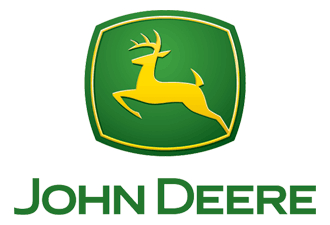 |
"The mere installation of a bypass filtration system on a John Deere engine will not automatically void the engine warranty. However, the engine warranty will not apply if the installation and use of a bypass filtration system or any other aftermarket product on a John Deere engine causes engine failures or problems. The John Deere engine warranty solely applies to defects in John Deere material and/or factory workmanship. Therefore, if such a defect is observed, John Deere has the responsibility to repair or replace these parts and components as specifi ed in the applicable warranty statement." |
FORD MOTOR COMPANY
|
|
"Per the Ford Owner Relations Division: “Ford Motor Company only recommends the use of genuine Ford certified filters and maintenance items on Ford products. When auxiliary devices, accessories, and/or consumables (filters, oil and fuel additives, synthetic oil, catalyst, etc., ) made by other manufacturers are used on Ford products, the Ford warranty is not affected simply because of their use. The Ford warranty continues to cover defects use by our material and workmanship. Failures results from the installation or usage of other manufacturers’ products are not Ford factory defects, and, therefore, are not covered by Ford warranty. Ford Motor Company is not in a position to evaluate the many auxiliary devices, accessories, and consumables promoted by other manufacturers and their potential impact on Ford products. Installation or use of such items is, therefore, at the discretion of the equipment owner who assumes all risks for the effects resulting from their usage. This position should be made clear to customers/owners of Ford equipment whenever a proposal or inquiry concerning the use of non-Ford auxiliary/devices, accessories, or consumables is received from them.” |
CATERPILLAR
 |
"When auxiliary devices, accessories or consumables (fi lters, oil, additives, catalysts, fuel, etc.) made by other manufacturers are used on Caterpillar products, the Caterpillar warranty is not affected simply becaues of such use. Failures that result from the installation or usage of other manufacturers auxiliary devices, accessories or consumables, however, are not Caterpillar factory defects and therefore are NOT covered by Caterpillar’s warranty." |
VOLVO TRUCKS NORTH AMERICA INC.
|
"With reference to your telephone inquiry regarding the use of bypass filtration systems, we would confirm that the fitting or use of this product does not, in itself, invalidate the warranty on the engine but we reserve the right to dislaim liability for failure which, in our opinion, can be attributed directly or indirectly to the failure of any non-Volvo equipment fitted to the vehicle." "This is in reply to you requesting a statement of our position regarding the use of your Kleenoil Bypass Filtration system on our equipment. Volvo Trucks North America neither approves nor disapproves any product(s) not manufactured or sold by Volvo Trucks North America. The use of your products on our vehicles do not in and of themselves void the warranty, but any damage which may result from their use might not be covered under warranty as a warrantable failure." |
MACK TRUCKS INC.
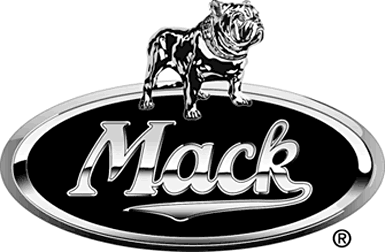 |
"Our statement relative to the use of the Kleenoil Filtration System is as follows: Use of products which we do not manufacture, sell, or recommend with Mack vehicles does not, in and of itself, void Mack warranty coverage. However, if the use of such product(s) results in a failure directly or indirectly of a Mack component or adversely affects operation of the vehicle, we would not accept responsibility under the terms of our warranty." |
DAIMLERCHRYSLER CORPORATION
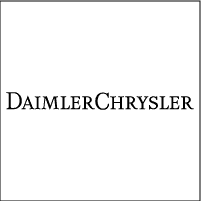 |
"DaimlerChrysler’s position concerning the installation of non-DaimlerChrysler parts remains unchanged. The following quote is from our 2000 Car and Truck Warranty Information Book: “Certain changes that you might make to your vehicle do not, by themselves, void the warranties....Nor do they (the warranties) cover the costs of any repairs or adjustments that might be caused or needed because of the installation or use of non-DaimlerChrysler Motors Corporation parts, components, equipment, materials, or additives.” |
NAVISTAR INTERNATIONAL CORPORATION
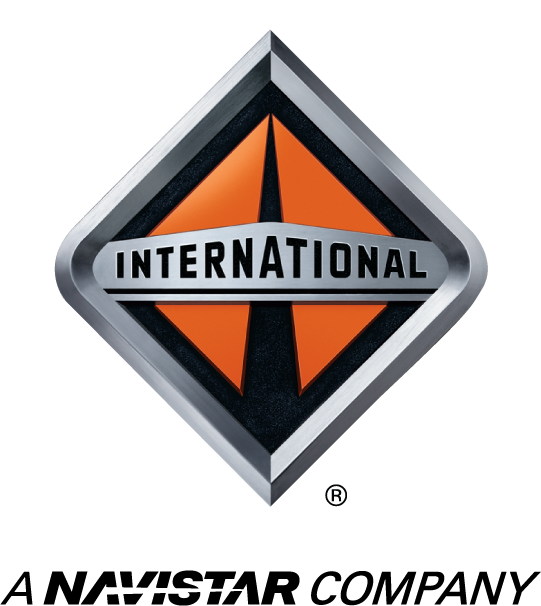 |
"This is in reply to you requesting a statement of our position regarding the use of your Kleenoil Bypass Filtration system on our equipment. Navistar, Inc. neither approves nor disapproves any product(s) not manufactured or sold by Navistar, Inc. The use of your products on our vehicles do not in and of themselves void the warranty, but any damage which may result from their use might not be covered under warranty as a warrantable failure." "The position on using aftermarket products on Navistar’s engines is as follows: “Navistar only recommends the use of genuine Navistar filters and maintenance items on Navistar products. When auxiliary devices, accessories, and/or consumables (filters, oil and fuel additives, synthetic oil, catalyst, etc..) made by other manufacturers are used on Navistar products, the Navistar warranty is not affected simply because of their use.The Navistar warranty continues to cover defects used by our material and workmanship. Failures resulting from the installation or usage of other manufacturers’ products are not Navistar factory defects, and, therefore, are not covered by Navistar warranty. Navistar is not in a position to evaluate the many auxiliary devices, accessories, and consumables promoted by other manufacturers and their potential impact on Navistar products. Installation or use of such items is, therefore, at the discretion of the equipment owner who assumes all risks for the effects resulting from their usage. This position should be made clear to consumers/owners of Navistar equipment whenever a proposal or inquiry concerning the use of non-Navistar manufactured auxiliary devices, accessories, or consumables is received from them. In addition to the above, we must also inform you that Navistar does not authorize the use of its trade name or trademark in a manner which implies our endorsement of these aftermarket products.” |
FEDERAL LAW
In order to improve the adequacy of information available to consumers, prevent deception, and improve competition in the marketing of consumer products, any warrantor warranting a consumer product to a consumer by means of a written warranty shall....fully and conspicuously disclose in simple and readily understood language the terms and conditions of such warranty. Such rules...require inclusion in the written warranty of any.....exceptions and exclusions from the terms of the warranty. Magnuson-Moss Warranty & Federal Trade Commission improvement Act. Section 2302(a)
TRADEMARK DISCLAIMER
Product names, logos, brands, and other trademarks featured or referred to within the kleenoilusa.com website are the property of their respective trademark holders.
These trademark holders are not affiliated with Kleenoil USA Inc., our products, or our website. They do not sponsor or endorse Kleenoil USA Inc.
Manufacturer Warranty Letters and Documents
![]() CAT - Optimizing Oil Change Intervals.pdf [231.99 KB] [2021-03-18 11:46:07]
CAT - Optimizing Oil Change Intervals.pdf [231.99 KB] [2021-03-18 11:46:07] ![]() CAT - Understanding Oil Analysis.pdf [1.31 MB] [2021-03-18 11:46:07]
CAT - Understanding Oil Analysis.pdf [1.31 MB] [2021-03-18 11:46:07] ![]() CAT Letter on Aftermarket Filters and Additives.pdf [53.93 KB] [2021-03-18 11:46:07]
CAT Letter on Aftermarket Filters and Additives.pdf [53.93 KB] [2021-03-18 11:46:07] ![]() Cat_Warranty.pdf [33.52 KB] [2021-03-18 11:46:07]
Cat_Warranty.pdf [33.52 KB] [2021-03-18 11:46:07] ![]() Caterpillar1.pdf [340.62 KB] [2021-03-18 11:46:07]
Caterpillar1.pdf [340.62 KB] [2021-03-18 11:46:07] ![]() Caterpillar Warranty Letter - Sept 24, 2008.pdf [95.1 KB] [2021-03-18 11:46:07]
Caterpillar Warranty Letter - Sept 24, 2008.pdf [95.1 KB] [2021-03-18 11:46:07] ![]() Caterpiller2.pdf [189.35 KB] [2021-03-18 11:46:07]
Caterpiller2.pdf [189.35 KB] [2021-03-18 11:46:07] ![]() Detroit Diesel.pdf [428.47 KB] [2021-03-18 11:46:07]
Detroit Diesel.pdf [428.47 KB] [2021-03-18 11:46:07] ![]() Detroit Diesel Warranty Letter - Mar 20, 2008.pdf [75.42 KB] [2021-03-18 11:46:07]
Detroit Diesel Warranty Letter - Mar 20, 2008.pdf [75.42 KB] [2021-03-18 11:46:07] ![]() John Deere Warranty Letter - Mar 20, 2008.pdf [28.93 KB] [2021-03-18 11:46:07]
John Deere Warranty Letter - Mar 20, 2008.pdf [28.93 KB] [2021-03-18 11:46:07] ![]() Mack Trucks Warranty Letter - Jan 1, 2007.pdf [18.16 KB] [2021-03-18 11:46:07]
Mack Trucks Warranty Letter - Jan 1, 2007.pdf [18.16 KB] [2021-03-18 11:46:07] ![]() Mack Trucks Warranty Letter - Nov 10, 2009.pdf [28.2 KB] [2021-03-18 11:46:07]
Mack Trucks Warranty Letter - Nov 10, 2009.pdf [28.2 KB] [2021-03-18 11:46:07] ![]() Manguson-Moss Warranty Act.pdf [41.1 KB] [2021-03-18 11:46:07]
Manguson-Moss Warranty Act.pdf [41.1 KB] [2021-03-18 11:46:07] ![]() Manufacturers Warranty Info.pdf [156.77 KB] [2021-03-18 11:46:07]
Manufacturers Warranty Info.pdf [156.77 KB] [2021-03-18 11:46:07] ![]() Navistar Warranty Letter - 11-17-2009.PDF [149.5 KB] [2021-03-18 11:46:07]
Navistar Warranty Letter - 11-17-2009.PDF [149.5 KB] [2021-03-18 11:46:07] ![]() Volvo Email.pdf [24.35 KB] [2021-03-18 11:46:07]
Volvo Email.pdf [24.35 KB] [2021-03-18 11:46:07] ![]() Volvo Warranty Letter - Nov 2, 2009.pdf [13.04 KB] [2021-03-18 11:46:07]
Volvo Warranty Letter - Nov 2, 2009.pdf [13.04 KB] [2021-03-18 11:46:07] ![]() mack_warranty_letter.pdf [39.68 KB] [2021-03-18 11:46:07]
mack_warranty_letter.pdf [39.68 KB] [2021-03-18 11:46:07]


